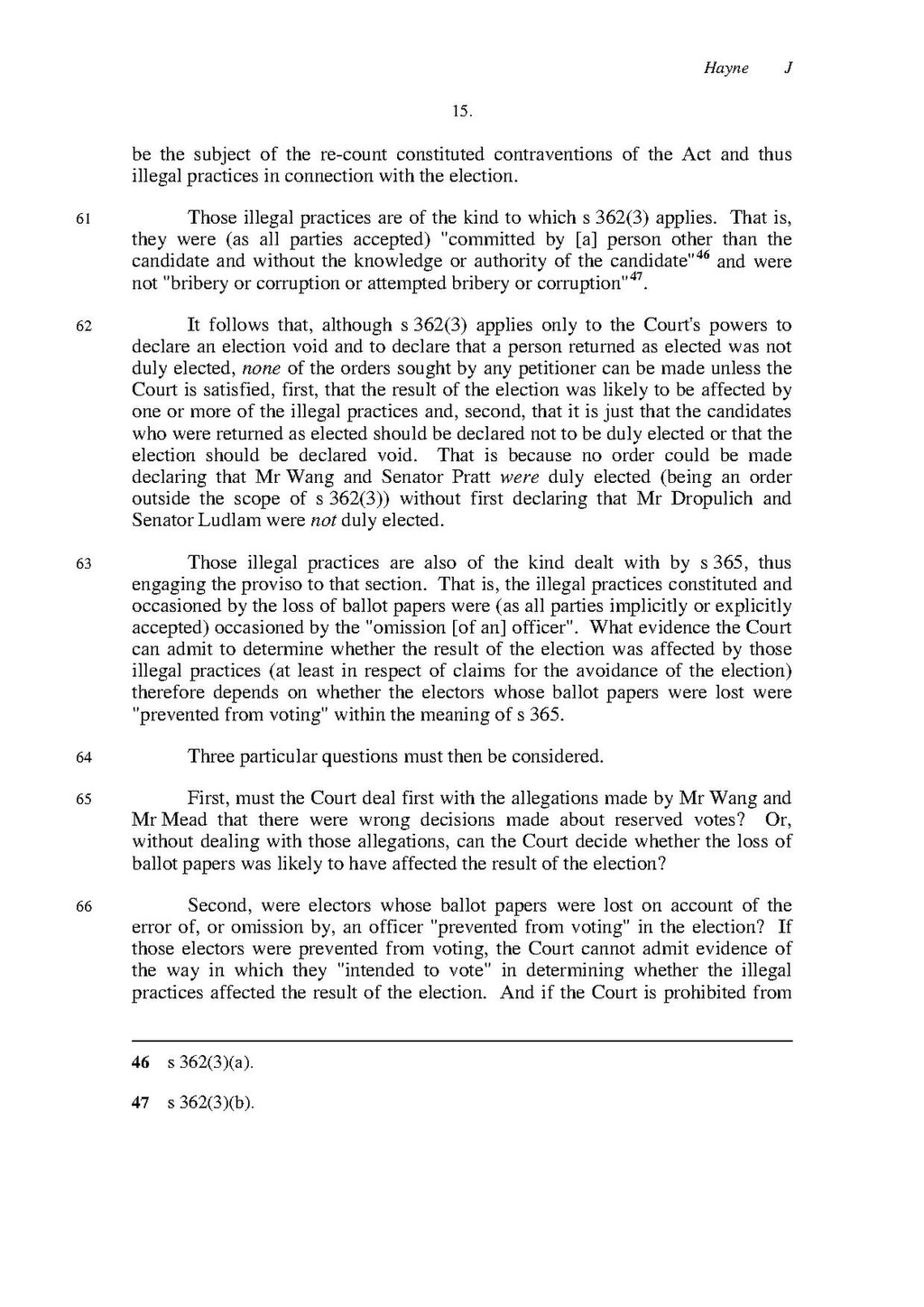15.
be the subject of the re-count constituted contraventions of the Act and thus illegal practices in connection with the election.
Those illegal practices are of the kind to which s 362(3) applies. That is, they were (as all parties accepted) "committed by [a] person other than the candidate and without the knowledge or authority of the candidate"[1] and were not "bribery or corruption or attempted bribery or corruption"[2].
It follows that, although s 362(3) applies only to the Court's powers to declare an election void and to declare that a person returned as elected was not duly elected, none of the orders sought by any petitioner can be made unless the Court is satisfied, first, that the result of the election was likely to be affected by one or more of the illegal practices and, second, that it is just that the candidates who were returned as elected should be declared not to be duly elected or that the election should be declared void. That is because no order could be made declaring that Mr Wang and Senator Pratt were duly elected (being an order outside the scope of s 362(3)) without first declaring that Mr Dropulich and Senator Ludlam were not duly elected.
Those illegal practices are also of the kind dealt with by s 365, thus engaging the proviso to that section. That is, the illegal practices constituted and occasioned by the loss of ballot papers were (as all parties implicitly or explicitly accepted) occasioned by the "omission [of an] officer". What evidence the Court can admit to determine whether the result of the election was affected by those illegal practices (at least in respect of claims for the avoidance of the election) therefore depends on whether the electors whose ballot papers were lost were "prevented from voting" within the meaning of s 365.
Three particular questions must then be considered.
First, must the Court deal first with the allegations made by Mr Wang and Mr Mead that there were wrong decisions made about reserved votes? Or, without dealing with those allegations, can the Court decide whether the loss of ballot papers was likely to have affected the result of the election?
Second, were electors whose ballot papers were lost on account of the error of, or omission by, an officer "prevented from voting" in the election? If those electors were prevented from voting, the Court cannot admit evidence of the way in which they "intended to vote" in determining whether the illegal practices affected the result of the election. And if the Court is prohibited from
